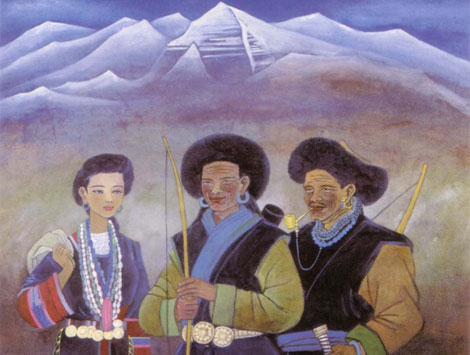
The Lhoba Nationality is one of the smallest ethnic groups of China. It has only 2.312 members. Now they mainly live in Mainling, Medog, Zayu, Khunze and Nang counties.
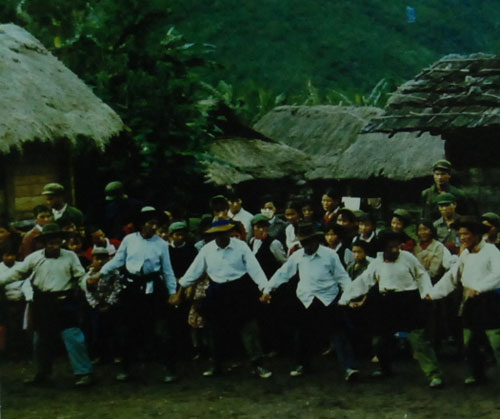
The Lhobas celebrate their Xudulong Festival with singing and dancing.
The Lhobas have many tribes including the Bogar, Ningbo, Bangbo, Degen, Adi, and Tajin. Lhoba is a name given them by the Tibetans meaning "the Southerners". After the founding of new China, they were named the Lhoba Nationality.
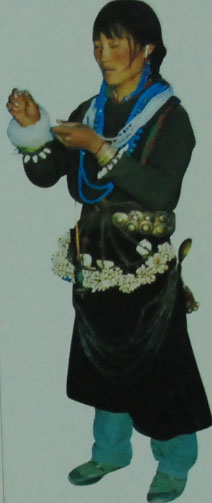
A Lhoba women in her holiday array.
The Lhoha language belongs to the Tibeto-Burman group of the Sino-Tibetan family with a distinct diversity of local dialects. In the past, the Lhobas summed and kept track of time by typing knots in rope and making notches on wood, but now some Lhobas use Tibetan to keep written records.
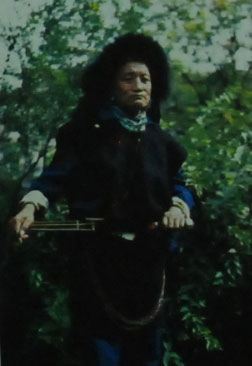
Lhoba men wear sabers around their waists.
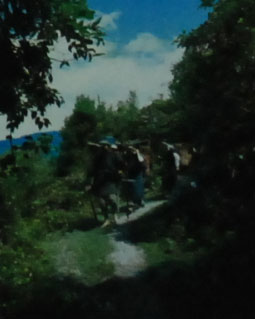
Owing to lack of easy transport, Lhoba people have to carry their products to places where they can exchange it for daily necessities.
The west of the turn of the Yarlung Zangbo River in the southern Himalayan Range, is home of the Lhobas. This beautiful gorge area, covered with thick forests, is quite difficult to access. But the Lhobas managed to develop high skills in building plank road on cliff and passing rattan bridge, single-plank Bridge and cable. By the mid-20th century, the Lhoba society was still at the rudimentary slash-and-bum stage in agriculture, which was supplemented by hunting. Ancient tradition remained. On group hunts, large games were equally shared in the tribe.




